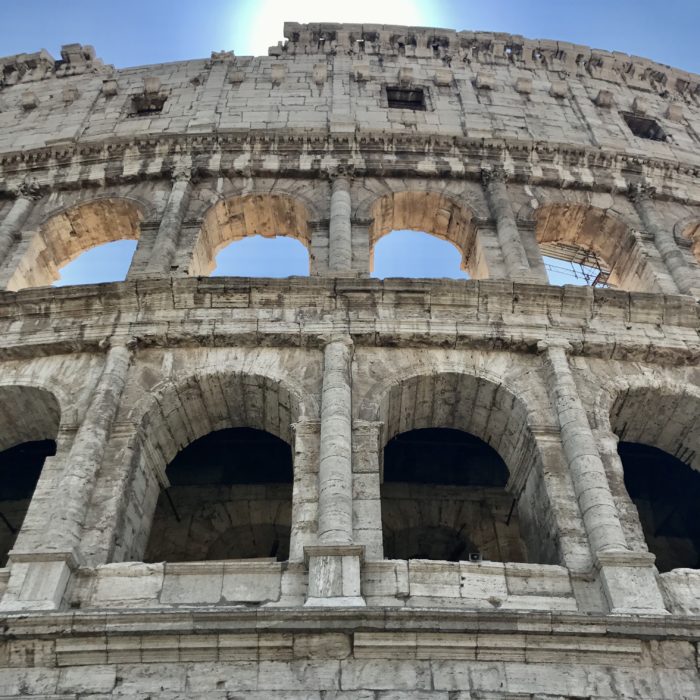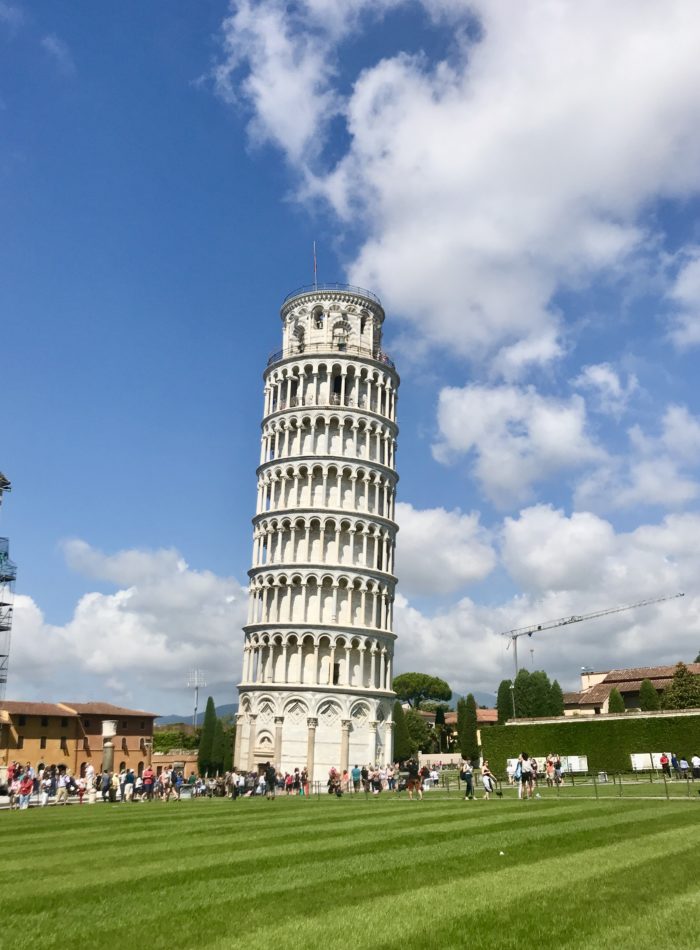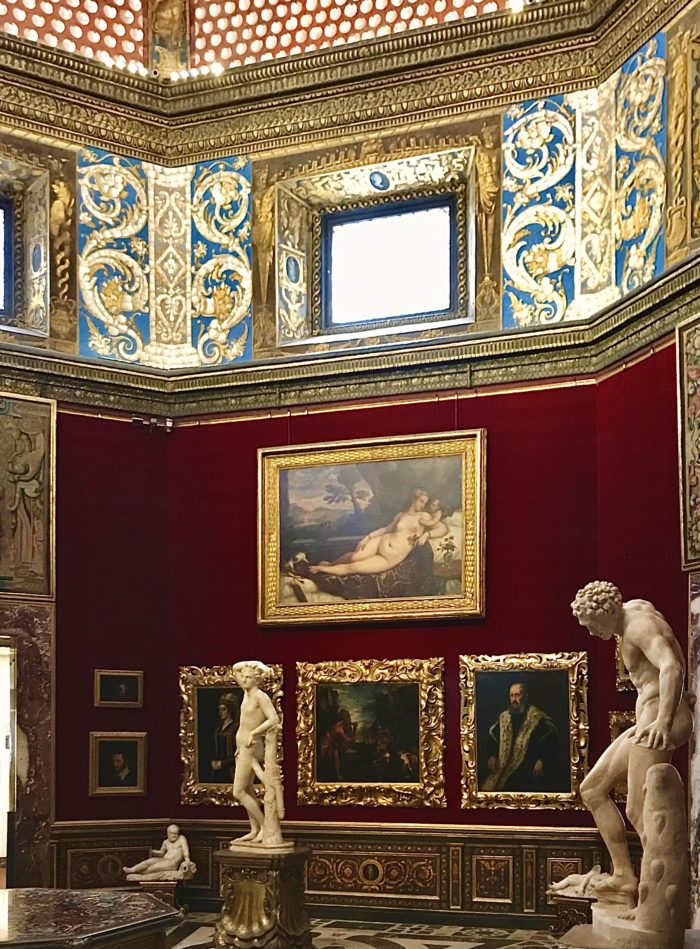The local is the new tourist: Sociological perspectives on Italy’s travel market recovery

In this post, Marta Soligo examines Italy's efforts to revive its tourism sector in the era of COVID-19, celebrating the renewed appreciation for all things local but warning of the dangers of mixing cultural heritage and politics.
I am part of the generation that grew up during the European low-cost flights boom. So many times, with my Italian adolescent friends, we complained about the fact that buying a 20-euro flight to London or Barcelona was way cheaper than booking a holiday in our home country. It is not a secret that when, in 2002, the Euro took over the Lira, traveling within Italy became almost a luxury, even for locals. The consequences, in that sense, were two-fold. While low cost flights to European cities and cheap all-inclusive vacations to exotic beaches were distracting Italians from their own attractions, Italian tourism professionals looked more interested in promoting their destinations to the international market rather than to the local one. The expression, “Italy is the most beautiful country in the world” is probably every Italian’s mantra, but when booking their vacations, Italians often opt for somewhere else. It is not a surprise if in the past few years in Italy the presence of foreign tourists exceeded that of residents.
In February 2020, however, everything changed. Being one of the most affected countries by COVID-19, Italy’s tourism had to deal with serious challenges. Since the beginning of the outbreak, travel bans worldwide made it clear that, at least for 2020, the sector needed some reconfigurations. Analyzing said tourism-related changes in Italy from a sociological perspective, I could not help but noticing the need for a discourse shift on the notion of the tourist itself. In a context in which international tourism was out of the game, institutions and operators started to understand the importance of promoting Italy to its residents. Moreover, since the first days of the lockdown, celebrities and influencers started using hashtags such as #VacanzeInItalia (holidays in Italy), suggesting their followers to spend the summer 2020 holidays in their home country. This strategy was well welcomed by Italians who, especially through social media, expressed a strong sense of solidarity towards locally owned small businesses, promising to book their next stays within the nations’ borders.

The pros: A new appreciation for cultural heritage and local communities
The first important step to promote Italian tourism officially was the campaign “ArT you ready?,” a virtual flash mob created by the Italian Ministry of Cultural Heritage and Tourism. Starting from the last week of March, the Ministry invited Italians to share on social media, every Sunday, their pictures of works of art, museums, theaters, landscapes, and other culturally meaningful locations throughout the national territory. Moreover, users were encouraged to post images of museum rooms with no visitors, using the hashtag #EmptyMuseums (recalling the status of museums during the lockdown). The goal was to keep residents in contact with the wonders of their country by actively involving them online. The response was noteworthy. On the first day of the flash mob, almost 70,000 posts were shared using the two hashtags. Forced to spend their Sundays at home, Italians decided to share the pictures they took before the lockdown, giving life to an interesting and new perspective on the connection between cultural heritage and collective memory.
The idea of sharing pictures of empty museums showed that, in order to exist, cultural displays need people. And if people cannot enjoy them physically—as it happened during COVID-19—they can keep them alive by sharing images of them. We do not have to forget that Italy is the country that, centuries ago, first understood the importance of opening the museums’ doors to every strata of the population (as the history of The Uffizi Museum in Florence confirms). During the outbreak, once again, Italian museums challenged the discussed notion of art for art’s sake, stressing the idea that cultural heritage is for the people. In the past few years, I heard a large number of scholars complaining about the fact that Italian museums are invaded by superficial international tourists who just care about taking selfies in front of mainstream and stereotyped artworks, such as Michelangelo’s David. Without a doubt, the COVID-19 pandemic put that trend on hold, giving residents the opportunity to reflect on their own cultural heritage, rediscovering the value of it through social media. The Ministry of Cultural Heritage and Tourism highlighted the hope that, through this new appreciation for their country’s cultural heritage, after the lockdown Italians will go back to visit those sites in person.
And less than a month after the “ArT you ready?” project, the government proposed a similar, but broader campaign, called “Viaggio in Italia” (Journey to Italy). The initiative invites Italians—especially those 21 million who used to spend their vacations abroad—to book their summer 2020 holidays in their home country. In doing so, the government hopes to compensate 30% for the collapse of foreign tourism. One of the main steps in this sense is the 500-euro bonus that the government will give to low-income families that decide to spend their holidays in Italy. This is an apparently good strategy for those local communities that heavily rely on tourism, whose losses due to COVID-19 will be hard to repay.

The cons: The dangerous relationship between heritage and politics
My interest in the sociology of tourism led me to the understanding that it is fundamental to support bottom-up and community-based activities. The influence of COVID-19 on the travel market revealed an irrevocable need for government-based support for local small businesses. However, especially looking at the current moment, a critical reflection on the appreciation for one’s own country’s cultural heritage might be commendable. Too many times, in the past few years, the notion of cultural heritage has been distorted to match the principles of certain ideologies that aim at affirming a country’s culture as superior to others. Unfortunately, especially in Western countries, there is a risky trend in this sense, which often leads to consequences such as racism and policies against immigrants. Cultural studies scholars know that the concept of cultural heritage is complex. It has a great potential in tearing down barriers and promoting sustainable forms of community-making. But it can also be a means for isolation and segregation.
And what about Italy, which under Mussolini’s regime saw its heritage used to prove the nation’s superiority over other cultures? It is vital, now more than ever, to not repeat the errors of the past. While promoting a rediscovery of our cultural resources, we should avoid using cultural heritage to promote nationalist or political rhetoric, and, instead, prompt education and global solidarity through shared appreciation. Currently, the situation is in the hands of Dario Franceschini, the Italian Minister of Cultural Heritage and Tourism, who is a member of the Democratic Party. Now that the lockdown is over, Franceschini— who already promoted the above-mentioned campaigns—is trying to renew a healthy and inclusive view of cultural heritage. In doing so, however, he has to be ready to fight against possible fascist perspectives on those initiatives. His task is tricky, but not impossible. In this moment, the beauty of Italy’s landscapes and the magnificence of its artworks can really help the recovery after the darkness of the pandemic. This is why it is important, as resident-tourists, to not only support local businesses, but to lean on a refreshed view of our cultural heritage based on social solidarity. Because beauty alone, today, is not enough anymore.
Marta Soligo is a Ph.D. candidate in Sociology at the University of Nevada, Las Vegas (UNLV), where she teaches Sociology of Leisure and is research assistant at the UNLV International Gaming Institute. Soligo’s most recent interests center on two main topics: sustainable tourism in Italy and immigrant workers’ experiences in hospitality. All images are copyright the author.
Twitter: @SoligoMarta
